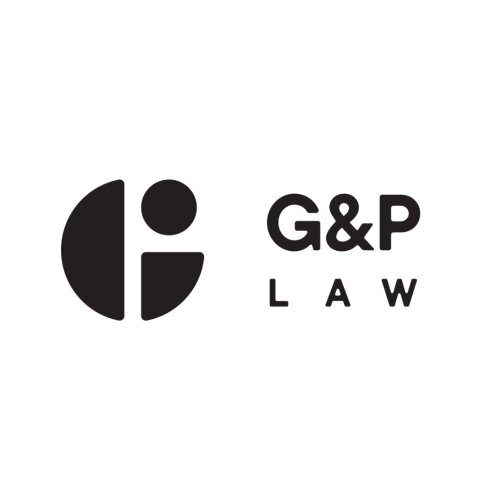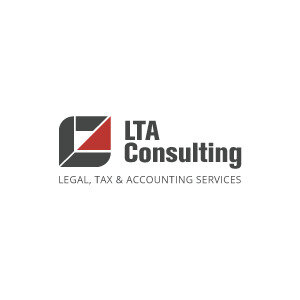Best Tax Increment Financing Lawyers in Bulgaria
Share your needs with us, get contacted by law firms.
Free. Takes 2 min.
Or refine your search by selecting a city:
List of the best lawyers in Bulgaria
About Tax Increment Financing Law in Bulgaria
Tax Increment Financing (TIF) in Bulgaria is a public financing method used for subsidizing redevelopment, infrastructure, and other community-improvement projects. TIF works by diverting future property tax revenue increases from a defined area, usually to encourage investment in economically lagging parts of a city. Although not as widely used as in some other countries, TIF in Bulgaria serves as a vital tool for local municipalities to facilitate infrastructure development and urban renewal.
Why You May Need a Lawyer
Engaging with Tax Increment Financing can be a complex legal endeavor. Here are some common situations where legal assistance might be essential:
- Project Initiation: Understanding the legal framework and requirements for setting up a TIF district or project.
- Compliance: Ensuring compliance with Bulgarian laws and regulations related to public financing and taxation.
- Contract Negotiation: Drafting and negotiating contracts between different stakeholders, including developers and local governments.
- Dispute Resolution: Handling disputes that may arise between various parties involved in a TIF project.
- Tax Implications: Navigating the tax implications and benefits associated with TIF funding.
Local Laws Overview
The key aspects of local laws relevant to Tax Increment Financing in Bulgaria include:
- Municipal Development Acts: Laws that govern the creation and management of TIF districts and projects.
- Tax Legislation: Regulations that determine how increment taxes are calculated and allocated.
- Environmental Impact Requirements: Compliance with environmental reviews and permissions necessary for TIF-funded projects.
- Public Participation and Approval: Processes that ensure community involvement and approval for proposed TIF projects.
- Financial Transparency: Legal requirements for documenting and reporting the financial aspects of TIF projects.
Frequently Asked Questions
What is Tax Increment Financing?
Tax Increment Financing is a financing method that funds projects by using the expected increase in tax revenue generated by the development itself.
How does a TIF district work?
A TIF district delineates an area where property taxes, after a base level, are set aside to finance improvement projects within the district.
Who can initiate a TIF project?
TIF projects are typically initiated by local government authorities, sometimes in partnership with private developers.
What types of projects are eligible for TIF financing?
TIF is often used for infrastructure improvements, urban renewal projects, and redevelopment of blighted areas.
How are TIF projects approved?
Projects usually require approval from local government bodies, as well as compliance with relevant laws and regulations.
What are the risks associated with TIF projects?
Risks can include insufficient future tax revenue to cover the costs, legal challenges, and changes in economic conditions.
Can TIF be used for residential projects?
Yes, TIF can be used to support residential projects, especially those that include affordable housing components.
What are the tax implications of TIF?
While TIF doesn't increase taxes, it reallocates future tax increases towards specific public improvements in the TIF district.
What is the duration of a TIF agreement?
The duration of a TIF agreement can vary, but it typically lasts until the specified project costs are recouped, often 10-20 years.
Can TIF districts be modified once established?
Modifications are possible but usually require a formal review and approval process by the local authorities.
Additional Resources
For further assistance and information on Tax Increment Financing in Bulgaria, consider reaching out to the following organizations and resources:
- The Bulgarian Ministry of Finance
- Local Municipal Development Agencies
- Bulgarian Chamber of Commerce
- Legal and Financial Advisory Firms specializing in public project financing
- EU Funding and Development Programs relevant to urban development
Next Steps
If you need legal assistance with Tax Increment Financing in Bulgaria, consider the following steps:
- Research and Identify Legal Experts: Look for lawyers or firms with experience in public financing and TIF projects.
- Prepare Documentation: Gather all pertinent documents related to your project or inquiry for a more productive consultation.
- Schedule Consultations: Arrange meetings with potential legal advisors to discuss your needs and evaluate their expertise.
- Engage a Specialist: Once you identify a qualified lawyer, formally engage their services to guide you through the complexities of TIF.
Lawzana helps you find the best lawyers and law firms in Bulgaria through a curated and pre-screened list of qualified legal professionals. Our platform offers rankings and detailed profiles of attorneys and law firms, allowing you to compare based on practice areas, including Tax Increment Financing, experience, and client feedback.
Each profile includes a description of the firm's areas of practice, client reviews, team members and partners, year of establishment, spoken languages, office locations, contact information, social media presence, and any published articles or resources. Most firms on our platform speak English and are experienced in both local and international legal matters.
Get a quote from top-rated law firms in Bulgaria — quickly, securely, and without unnecessary hassle.
Disclaimer:
The information provided on this page is for general informational purposes only and does not constitute legal advice. While we strive to ensure the accuracy and relevance of the content, legal information may change over time, and interpretations of the law can vary. You should always consult with a qualified legal professional for advice specific to your situation.
We disclaim all liability for actions taken or not taken based on the content of this page. If you believe any information is incorrect or outdated, please contact us, and we will review and update it where appropriate.
Browse tax increment financing law firms by city in Bulgaria
Refine your search by selecting a city.















